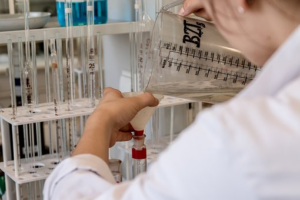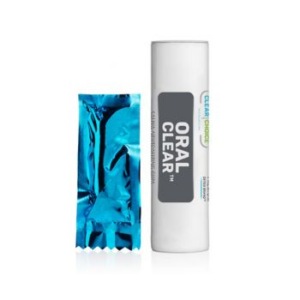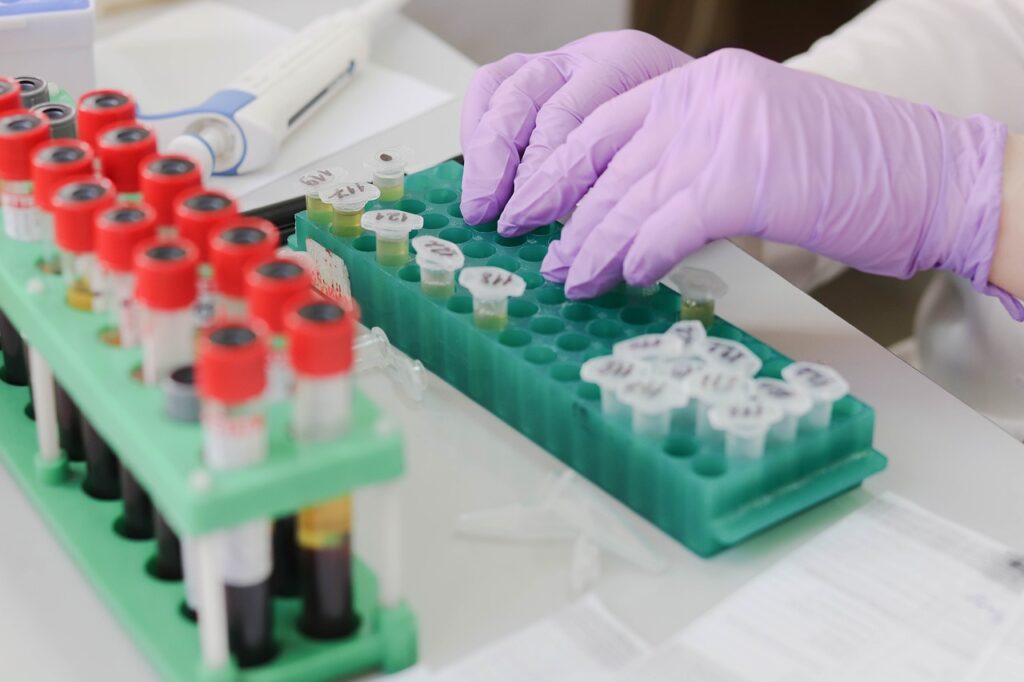Silenttest.com may earn a commission when you purchase products from companies we are affiliated with through promoting their products, at no extra cost to you. Prices are the same when buying products through an affiliate or non-affiliate link. Full Disclosure
Drug tests are a common practice in various fields, including, employment, sports, and law enforcement. The frequency of drug testing depends on several factors, such as the industry, job type, and company policies.
Some employers conduct drug tests during the pre-employment process, while others may require random drug testing throughout an employee’s tenure.
In sports, athletes may be subject to regular drug testing to ensure fair play and prevent the use of performance-enhancing substances.
In this guide, you will learn how often drug test re done and how to pass the tests.
drug testing and its purpose


Drug testing refers to the process of analyzing biological samples, such as urine, blood, hair, or saliva to detect the presence or absence of drugs or their metabolites. The primary purpose of drug testing is to screen individuals for drug use or abuse.
Drug testing is used in a variety of settings, including:
- Workplace
Employers may conduct drug testing to ensure a safe working environment and to comply with federal and state regulations.
Drug testing is especially important in industries where the use of drugs can impair judgements or increase the risk of accidents, such as transportation, construction and healthcare.
- Sports
Athletes may be subject to drug testing to prevent the use of performance-enhancing drugs and to ensure fair competition.
Law enforcement
Drug testing is used by law enforcement agencies to identify and prosecute individuals who use or traffic illegal drugs.
- Healthcare
Drug testing may be used to monitor patients who are prescribed controlled substances such as opioids to ensure compliance with treatment plans and to detect potential drug abuse.
Types of drug tests


There are several types of drug tests that are commonly used to detect the presence of drugs or their metabolites in the body.
They include:
1.Urine tests
Urine tests are the most common type of drug test and are used to detect recent drug use. These tests are non-invasive and can detect a wide range of drugs and their metabolites.
They can detect drug use for up to30 days after use, depending on the drug. You can pass a urine drug test after the days are over but if you are short of time, then there are other options.
Take a detox drink that is going to mask the drug metabolites and hinder them from being detected during the drug test or use fake pee to dodge the drug test. You will need top notch products in this case.
2.Blood tests
Blood tests are less common than urine tests, but they can provide more accurate results. Blood tests are typically used to detect recent drug use or to monitor drug levels in individuals who are taking prescription drugs.
Blood tests can detect drug use for up to a few days after use, depending on the drug.
3.Hair tests
Hair tests are less common than urine or blood tests, but they can detect drug use over a longer period of time. Hair tests can detect drug use for up to 90 days or even years, depending on the length of the hair sample and the drug used.
Hair follicle tests can be challenging to pass but with the right shampoo for hair follicle test, you will definitely have a successful story to tell.
It requires procedural methodology in which you apply, to detox your hair before the day of your drug test, which is the macujo method.
4.Saliva tests
Saliva tests are also less common than urine tests, but they can provide fast and accurate results. Saliva tests are typically used to detect recent drug use and can detect drug use for up to 3 days after use, depending on the drug.
If your mouth swab drug test is in 3 days or more, you can thoroughly cleanse your mouth at home by using mouth wash containing hydrogen peroxide, brush your teeth and tongue many times than the usual.
However, if you land on an emergency saliva drug test, the easiest and effective way to pass saliva drug test is by chewing a detox gum and within 30 seconds, your saliva is clean.


Pro tip: Always have an extra oral clear gum, with you just in case you have unannounced saliva drug tests. It is a detox gum that you need for that saliva drug test.
It’s important to note that the detection window for each type of drug test can vary depending on the drug, the individual’s metabolism, and other factors.
How often are drug tests done?
In the context of drug testing, it can be carried out for various reasons and may vary with the sector you are in. It can be done regularly to make sure you are at compliance with the set rules.
See how often drug testing can be done in various sectors:
1.Employment drug testing


The frequency of drug testing can vary by employer, industry, and job type. Employers should have a clear drug testing policy in place that outlines the circumstances under which drug testing will be conducted and the frequency of testing for each type of testing.
- Pre-employment drug testing
This type of drug testing is typically conducted once, prior to an employee’s start date. It may be required as a condition of employment, and its purpose is to ensure that the employee is drug-free before starting work.
- Random drug testing
Random drug testing can be conducted periodically, without any advance notice, to detect drug use among employees. The frequency of random drug testing can vary depending on the employer’s policy and the nature of the job.
Some employers may conduct random drug testing quarterly, while others may do it once a year or less frequently. While This kind of drug testing are common tests in Department of transport (DOT), it can be done even in other departments, stay woke!
- Post-accident drug testing
This type of drug testing is typically done after an employee has been involved in an accident or incident at work. The frequency of post-accident drug testing can vary depending on the nature of the job and the employer’s policy.
- Reasonable suspicion drug testing
This type of drug testing is conducted when an employer has reason to suspect that an employee is under the influence of drugs or alcohol while on the job. The frequency of reasonable suspicion drug testing will depend on the specific circumstances of each case.
- Return-to-work drug testing
This type of drug testing is conducted after an employee has completed a drug or alcohol rehabilitation program and is returning to work. Besides, it can also b done to an employee when resuming job after their leave.
2.Probation and Parole Drug Testing


The frequency of drug testing for probation and parole varies depending on the specific circumstances of the individual case and the policies of the probation or parole agency.
Here is a general overview of the four types of drug testing during probation:
- Random drug testing
This type of drug testing involves selecting individuals for testing on a random basis, without any prior notice or scheduling. The frequency of random drug testing can vary widely, but it is often done on a regular basis (e.g., weekly, monthly, or quarterly).
- Scheduled drug testing
Scheduled drug testing involves setting a specific date and time for an individual to report for drug testing. The frequency of scheduled drug testing can also vary, but it is typically done less frequently than random drug testing.
- Reasonable suspicion drug testing
This type of drug testing is conducted when there is reason to believe that an individual is using drugs or has violated the terms of their probation or parole. The frequency of reasonable suspicion drug testing is typically determined on a case-by-case basis.
- Post-release drug testing
This drug testing is often required as a condition of release from prison or jail. The frequency of post-release drug testing can vary, but it is typically more frequent in the early stages of release and may decrease over time as the individual demonstrates compliance with the terms of their release.
Probation and parole agencies have the discretion to vary the frequency and type of drug testing based on individual circumstances, as well as the individual’s compliance with the terms of their probation or parole
Industry-specific drug testing requirements


1.Transportation industry
The transportation industry is subject to drug and alcohol testing regulations from the Department of Transportation (DOT) in the United States.
The DOT requires drug testing for employees in safety-sensitive positions, including truck drivers, bus drivers, pilots, and railroad employees.
The drug testing panel includes marijuana, cocaine, amphetamines, opiates, and phencyclidine (PCP). Alcohol testing may also be required, with a permissible limit of 0.02 blood alcohol concentration (BAC) for safety-sensitive positions.
2.Healthcare industry
Drug testing in the healthcare industry is often required by individual employers and is typically done to ensure the safety of patients and staff.
Healthcare professionals who work with controlled substances, such as physicians, nurses and pharmacists may be subject to drug testing as a condition of employment.
The drug testing panel typically includes; prescription medications, as well as illegal drugs. Some healthcare employers may also test for alcohol use.
3.Government employees
Drug testing requirements for government employees vary depending on the agency and position. For example, employees in safety-sensitive positions, such as law enforcement officers and transportation workers, may be subject to drug testing.
Federal employees may be subject to drug testing under the Federal Drug-Free Workplace Program. Some state and local governments may also require drug testing for employees.
4.Athletics industry
Drug testing is a common practice in the athletics industry to prevent the use of performance-enhancing drugs (PEDs). Professional athletes, as well as collegiate and Olympic athletes, may be subject to drug testing.
The drug testing panel typically includes anabolic steroids, growth hormone, and other substances that can enhance performance.
Drug testing is also done to prevent the use of recreational drugs, such as marijuana and cocaine, which are prohibited by most sports organizations.
Importance of drug testing


Drug testing is an essential process that helps identify the presence of illicit drugs in a person’s system. The importance of drug testing cannot be overemphasized, and here are some reasons why:
Safety: Drug testing in the workplace can ensure that employees are not under the influence of drugs or alcohol, which could impair their ability to perform their duties safely. This is especially important for jobs that involve heavy machinery or hazardous materials.
Prevention of drug abuse: Drug testing can act as a deterrent to drug use, especially for those who are employed in jobs that require sobriety. Knowing that they could be tested at any time can discourage employees from using drugs.
Compliance: Certain industries, such as transportation and aviation, have strict regulations regarding drug use. Drug testing helps ensure that employees in these industries comply with these regulations.
Health: Drug testing can also identify individuals who are struggling with drug addiction and refer them to treatment programs. This can help prevent the individual’s health from deteriorating further and may even save their life.
Legal protection: Drug testing can protect employers from liability in the event of an accident or injury caused by an employee under the influence of drugs.
FAQs


Do drug tests test for nicotine?
Standard drug tests typically do not test for nicotine. However, some specialized tests such as those used for insurance or employment purposes, may include a test for nicotine use.
Additionally, some healthcare facilities may test patients for nicotine as part of their overall health assessment or as a requirement for certain medical procedures. It’s important to note that nicotine is not considered an illicit drug, and its usage is legal for those over the age of 18 in many parts of the world.
Do drug tests always work?
Drug tests are designed to detect the presence of drugs or their metabolites in a person’s system, and they are generally reliable when used correctly. Regardless, there are several factors that can affect the accuracy of drug tests, including the type of drug being tested for, the type of test being used, and the timing and frequency of drug use.
How long does it take for a 10 panel drug test to come back?
The time it takes for a 10 panel drug test to come back can vary depending on the testing facility and the specific method used to conduct the test. In most cases, results for a 10 panel drug test are available within 1-3 business days.
Some testing facilities may offer expedited or same-day testing for an additional fee. It’s best to check with the testing facility or laboratory that is conducting the test for a more accurate estimate of when you can expect to receive your results.
how long do urine drug test results take?
The length of time it takes to get urine drug test results can vary depending on several factors, including the type of test being performed, the laboratory processing the test, and the policies of the organization or agency requesting the test.
Typically, urine drug tests can produce results within a few days to a week. Some rapid urine drug tests can produce results within minutes, but these tests may be less accurate than laboratory tests and may require confirmation through additional testing.
Final verdict
The rate at which drug tests ae done depends solely on the organization. It is good you check with your working sector and plan better.
That way, you will be in a position to pass any drug test that comes your way. If it is too late to pass a drug through drugs abstinence, you can opt for a quicker way to mask drugs metabolites.
